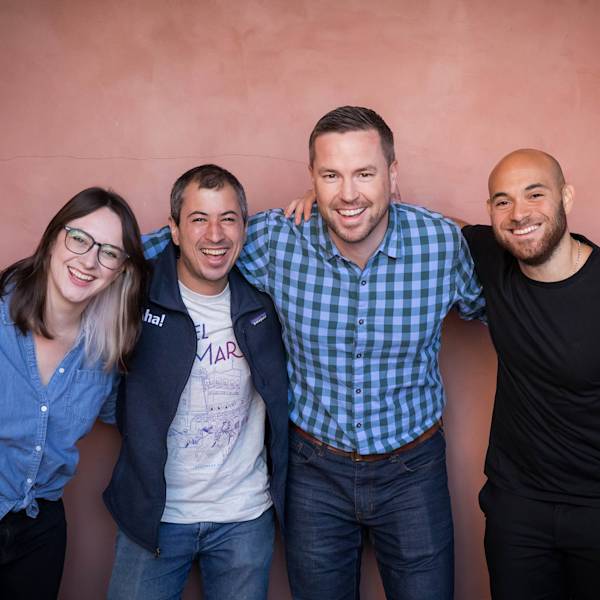
Frank horseback riding in scenic surrounds at a recent Aha! onsite. | Photo by Jodi B Photography
My name is Frank Sun — this is why I joined Aha!
"Explain it like I'm five." People often use this phrase to ask for a basic explanation of complex concepts. It has nothing to do with maturity level — it shows interest in learning something new and approaching it with a beginner's mindset. For example, not everyone needs to be an expert on data architecture. My job as a data engineer is to explain what the numbers mean in ways that everyone can understand, so they can easily apply those insights to their own work.
My role involves a lot of technical work and analytical thinking — but what I care about most is the curiosity and communication surrounding it.
I studied computer engineering in school. My program was uniquely structured — alternating between classes and internships every few months. In my internships, I helped to build software solutions for different companies. The first was with a pension plan fund for teachers, which sparked my interest in the finance industry. I went on to intern with other well-known investment and banking firms, and I even took a few economics courses to deepen my knowledge.
These experiences helped me land my first full-time position with S&P Global after earning my degree. When I first joined, the company offered me a choice between two roles: software developer or database engineer. Even though my background was more aligned with the former, I decided to take the unique opportunity to try the latter.
Database engineering requires a different type of thinking than building software — I was ready to lean in and explore something new.
Software development is incremental and iterative. Changes happen often. Database engineering takes a more structured and systematic approach — requiring extensive upfront planning. This architectural aspect of the role appealed to me. It was also fascinating to work with market intelligence data. For example, I gathered and managed complex datasets that helped investors gauge a business's risk of defaulting.
I stayed with the company for more than nine years. In that time, I built up nearly a decade of database engineering experience while working with a close team. But as the business grew and changed, I started to crave a new experience at a tighter-knit company.
So I turned to Glassdoor. That is how I found Aha! — I was so impressed by the reviews that I knew I had to apply. But I was also drawn to the company's bootstrapped approach. Working in the finance industry showed me what goes wrong when VC-funded startups put growth above value. When I learned that Aha! had no shareholders to answer to, it signaled to me that the company is serious about self-accountability.
Since joining Aha! as a senior data engineer, I have managed our backend data systems and analytics. It is a super cross-functional role. I am always collaborating with People Success, finance, and marketing to provide the dashboards they need to understand the impact of their work. That means my reports — like those displaying candidates moving through the hiring process or the number of active trials for our products — often show up in our weekly all-hands meetings.
People often come to me with their reporting questions. I get to ask them questions, too, and learn what information matters most — then take their requests and pull together the answers. I love these 1:1 interactions. It keeps each day interesting. And it is really satisfying to help people make more data-driven decisions across the entire organization.
We have a super fast feedback loop at Aha! — helping us all get work done efficiently across teams while honoring one another's time.
Everyone at Aha! operates on a high level. It is really refreshing to be part of a team where everyone is motivated to achieve. Two years in, I can say that what I read on Glassdoor holds true in my experience.
That is why I joined Aha! — and why you should too.




